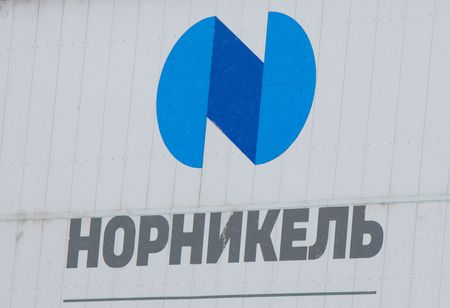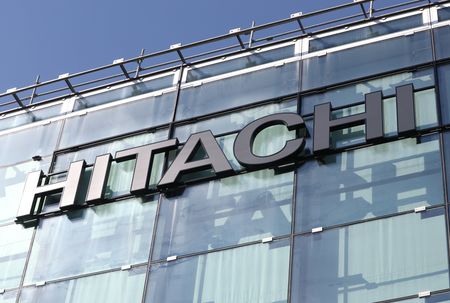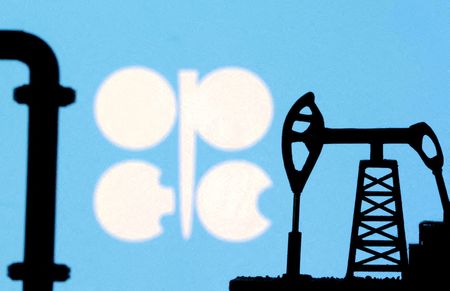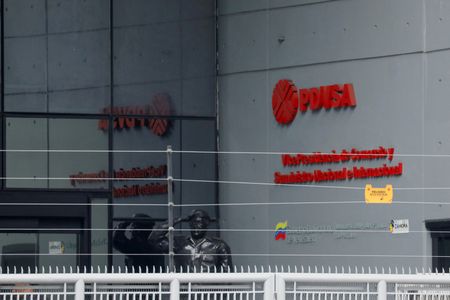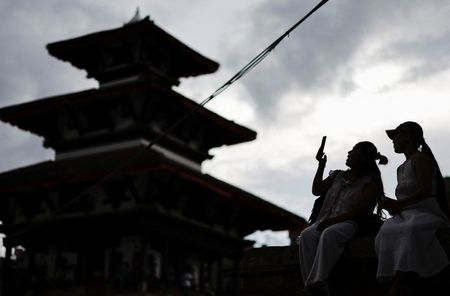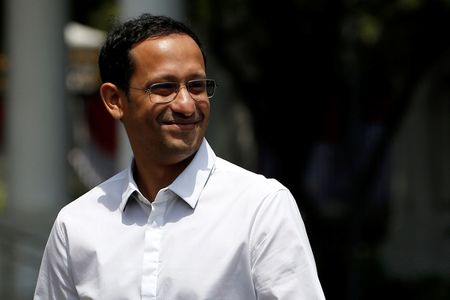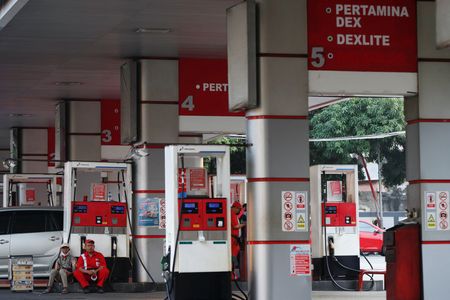VLADIVOSTOK, Russia (Reuters) -Chinese banks are still delaying payments for Russian imports by up to four weeks, a senior executive at metals producer Nornickel said on Thursday, despite assurances from Russian officials that payment problems with China are easing.
The problems with settlements with China and other Russian trade partners peaked last year as banks came under pressure from Western regulators to comply with Western sanctions, forcing firms to resort to cryptocurrencies or even barter.
The issue became a subject of discussion between Russian President Vladimir Putin and Chinese President Xi Jinping. However, after their meeting in Moscow in May, Russian officials said that the problem had eased and payments were now coming through.
The two leaders did not speak publicly about the payment issues during Putin’s four-day visit to China this week, where Xi called for a new global security and economic order.
International payments are a sensitive subject for Russian firms, and most executives prefer not to elaborate to avoid drawing unnecessary attention. Nornickel’s Vice President for Sales, Anton Berlin, indicated that problems still persist.
“As soon as a new package of sanctions is announced, it doesn’t matter if it doesn’t affect our products or our company in any way, Chinese banks take a pause for 2-3-4 weeks. They need to study the text (of the accompanying documents), and payments simply get delayed,” Berlin told a panel discussion at the Far East Economic Forum in Vladivostok.
“In the past, we were used to receiving money the next day, or within two days, but now several days is the norm, and several weeks is not uncommon,” Berlin said.
He added that the issue was hurting the company’s ability to maintain working capital and forcing it to increase borrowing at rates that remain very high due to the central bank’s policy to fight inflation.
A senior finance ministry official told the same panel that he thought payments were no longer being delayed. “I believe that this (cross-border payments) is not a problem anymore,” Alexei Yakovlev said.
Nornickel, a major producer of refined nickel and palladium, currently sells over 50% of its output to Asia, with China being the largest buyer. Berlin said that the company was running several schemes in parallel to execute its payments, without elaborating.
Berlin said that the Western sanctions themselves were less of a problem than the self-imposed restrictions that banks in China and other Russian trading partners introduce out of fear of potential action by their Western regulators and counterparts.
He called for more secrecy over Russia’s international transactions that would shield it from the eyes of Western regulators and said a new international payments system independent from the West was needed.
“It was always said that increasing the transparency of financial transactions was important, but now anonymity is also becoming an important aspect. Transparency should be very limited to those regulators whom it concerns,” he said.
(Reporting by Anastasia Lyrchikova and Gleb Bryanski in Moscow and Olesya Astakhova in Vladivostok; editing by Philippa Fletcher)

